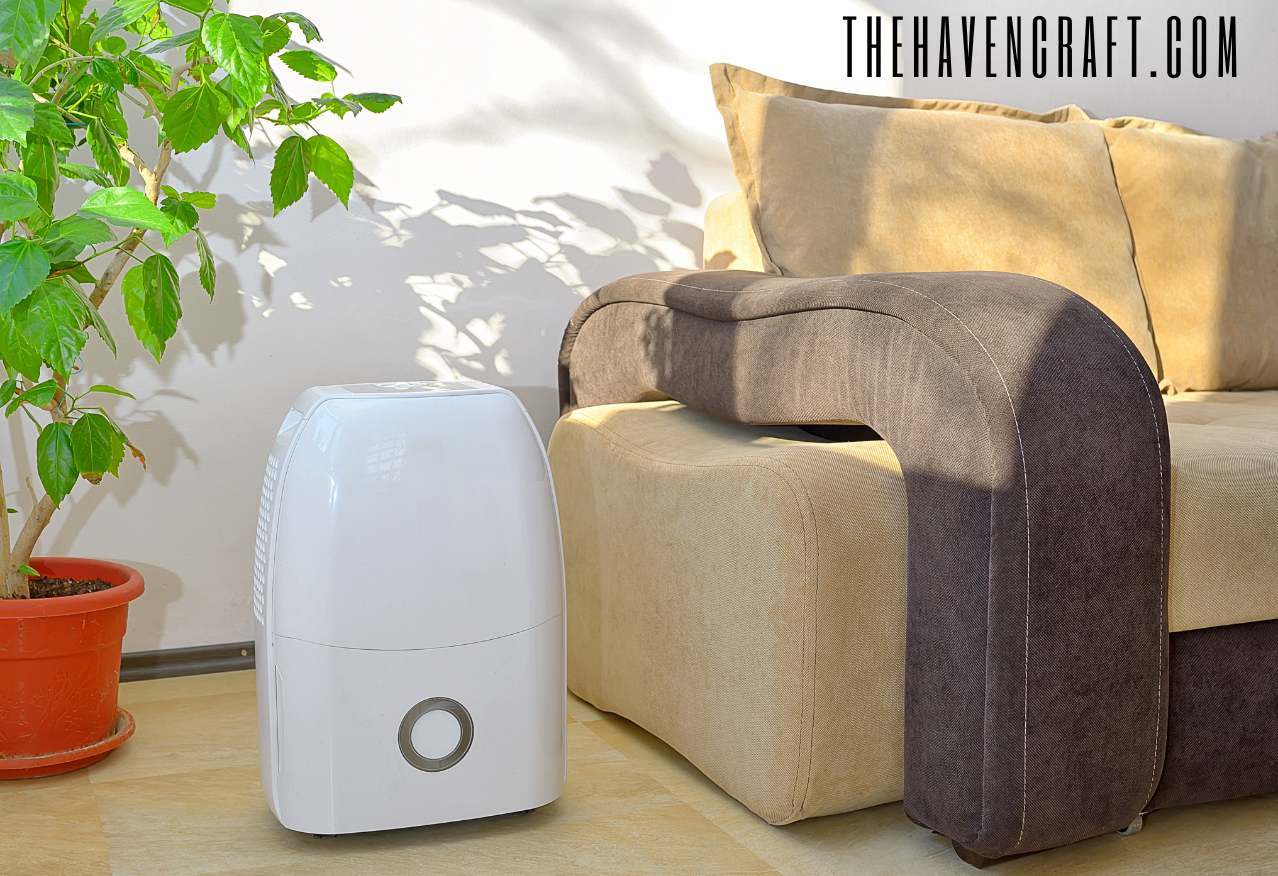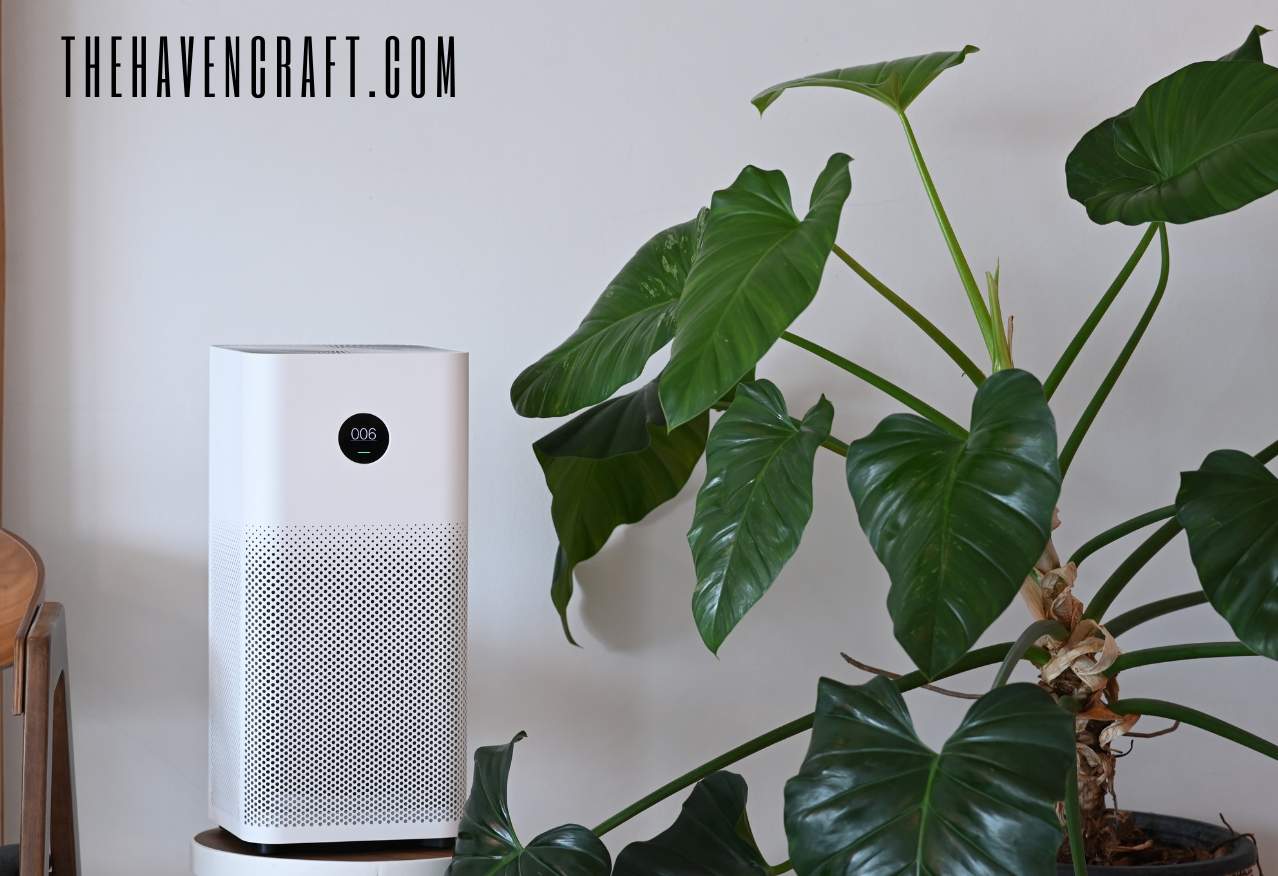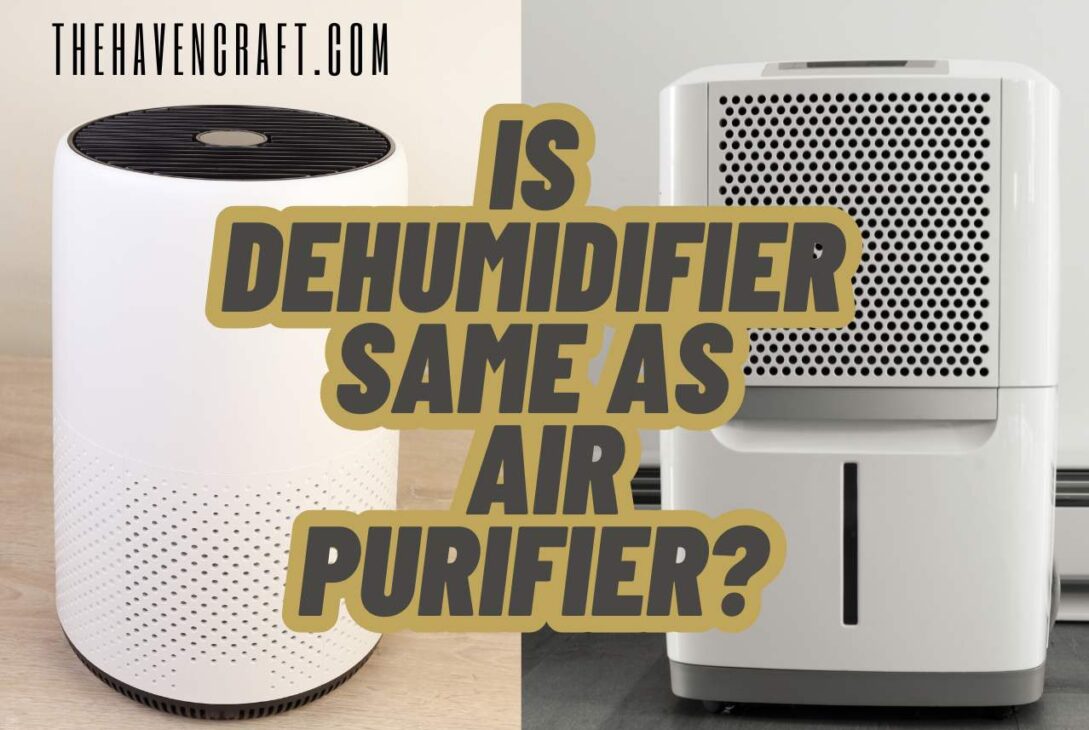Dehumidifiers and air purifiers are helpful household machines. However, many people have this question in their minds: is a dehumidifier the same as an air purifier? No, they are not the same. You already have your answer, right? If you are seeking a comprehensive one, this article has your back. Let’s dive in and discuss more.
What is a Dehumidifier?
In the simplest of forms, a dehumidifier is a device that reduces and maintains humidity levels in the air. People use dehumidifiers mainly for health purposes in addition to obvious comfort reasons, as these machines have the ability to eliminate musty odors and prevent mold growth.
How Does a Dehumidifier Work?
Dehumidifiers work by drawing in moist air through a fan. The air passes over cooled coils where condensation occurs, removing moisture from the air. This moisture is collected inside the machine, and the air around the environment is reheated, making the air comfortable to breathe in and live around.


Benefits of Dehumidifiers
Let us explain the pros of dehumidifiers.
- Dehumidifiers can prevent mold growth. Mold and mildew can hamper the outlook of the property and cause damage. Most importantly, it can directly impact the health of people living on the property.
- When the humidity level inside a home is normal, it obviously brings a comfortable feeling, which is essential to prevent the uncomfortable, sticky feeling caused by excessive moisture.
- Dehumidifiers help alleviate allergies by reducing dust mites and mold spores in the air.
- They are super helpful to reduce the musty odor related to damp environments.
What is an Air Purifier?
As we mentioned right at the very beginning, an air purifier is a device designed to improve indoor air quality by removing contaminants from the air. When it comes to the contaminants removed by an air purifier, they may include dust, pollen, smoke, pet dander, and other airborne particles.
How Does an Air Purifier?
Air purifiers operate by drawing in air through filters located inside the machine. These filters include high-efficiency particulate air filters that are capable of catching even small particles in the air. In addition, air purifiers come with activated carbon filters to absorb troublesome odors.
Modern-day air purifiers have even more contemporary features, such as UV light, to deal with bacteria and viruses and make the air clean around you.


Benefits of Air Purifiers
- Air purifiers help improve air quality around you by removing pollutants in the air. The air you breathe will be cleaner and healthier.
- Air purifiers are tailor-made to bring you relief from allergies.
- It is ideal for killing the odors formed by pets, cooking, and smoking.
- Reduces the risk of respiratory issues and enhances overall well-being by minimizing exposure to harmful pollutants.
Is the Dehumidifier the Same As an Air Purifier?
As you can understand by reading the above sections of the article, a dehumidifier and an air purifier are not the same; they serve distinct functions. A dehumidifier reduces humidity levels by removing moisture from the air, while an air purifier cleans the air by removing contaminants.
Who Should Use Dehumidifiers?
Considering the fact that dehumidifiers can efficiently maintain humidity levels and prevent mold growth, they are ideal for homes that get damp easily. In addition, its ability to reduce moisture levels makes dehumidifiers a good choice for people who suffer from asthma or allergies.
Further, if your house or office has poorly ventilated areas such as basements or crawl places with high humidity levels, dehumidifiers are a machine that you should definitely consider having.
Moreover, bathrooms and laundry areas where moisture will be an issue can benefit from a dehumidifier.
Simply put, moisture and humidity can cause various issues with people’s health as well as property. If you are one of them, we recommend you buy a dehumidifier without a second thought to get rid of these issues.
Who Should Use Air Purifiers?
Air purifiers are particularly beneficial for allergy and asthma sufferers as these machines’ primary objective is to purify the air. In addition, if you have pets inside your home, an air purifier is one device that you should have on your premises.
If you and your family members are involved with smoke-related activities such as in-home BBQs or smoking in general, the air tends to get contaminated. If this is the case, one easy solution to purify the air around your environment is using an air purifier.
Moreover, you can keep an air purifier inside your bedroom if you are struggling to find a good night’s sleep.
Overall, we would say that anyone looking to enhance their living environment and protect their health from contaminants present in the air should consider using an air purifier.
FAQ
Can a Dehumidifier Also Purify Air?
A dehumidifier doesn’t effectively clean air. Instead, as the name suggests, it focuses on removing excessive air to control the humidity. That said, a dehumidifier can indirectly improve the quality of the air as it kills mold growth and mildew, which can cause air to become contaminated with their presence.
How Do I Know if I Need a Dehumidifier?
If your surroundings are full of musty odors, or you notice mold growth, or you live in a place where dampness is an issue, you must consider buying a dehumidifier. Condensation is another indication. Condensation on walls can also indicate that you need a dehumidifier.
In addition, if you feel the surfaces and furniture of your home are sticky, and the woody surfaces show swelling, it’s time for you to pull out your credit card and bring home a dehumidifier.
Dehumidifier or Air Purifier for Smell?
To deal with smells, an air purifier is the better choice as these machines come with activated carbon filters whose job is to fight different types of odors. On the other hand, a dehumidifier can fight against only the musty odors created by humidity. So, yes, an air purifier should be your go-to option if your objective is to get rid of odors in your home.


Adam Voges is a seasoned expert with 11 years of experience in the heating and cooling industry. His deep understanding of HVAC systems and cutting-edge home climate technologies makes him a trusted authority on maintaining comfortable and energy-efficient homes. Adam’s blog discusses the latest innovations, best practices, and troubleshooting tips for heating and cooling devices, helping homeowners make informed decisions about their indoor climate control. Whether you’re looking to upgrade your system, optimize energy usage, or solve common HVAC issues, Adam’s insights are invaluable. His passion for sustainable living and his commitment to enhancing home comfort shine through in every article he writes.



